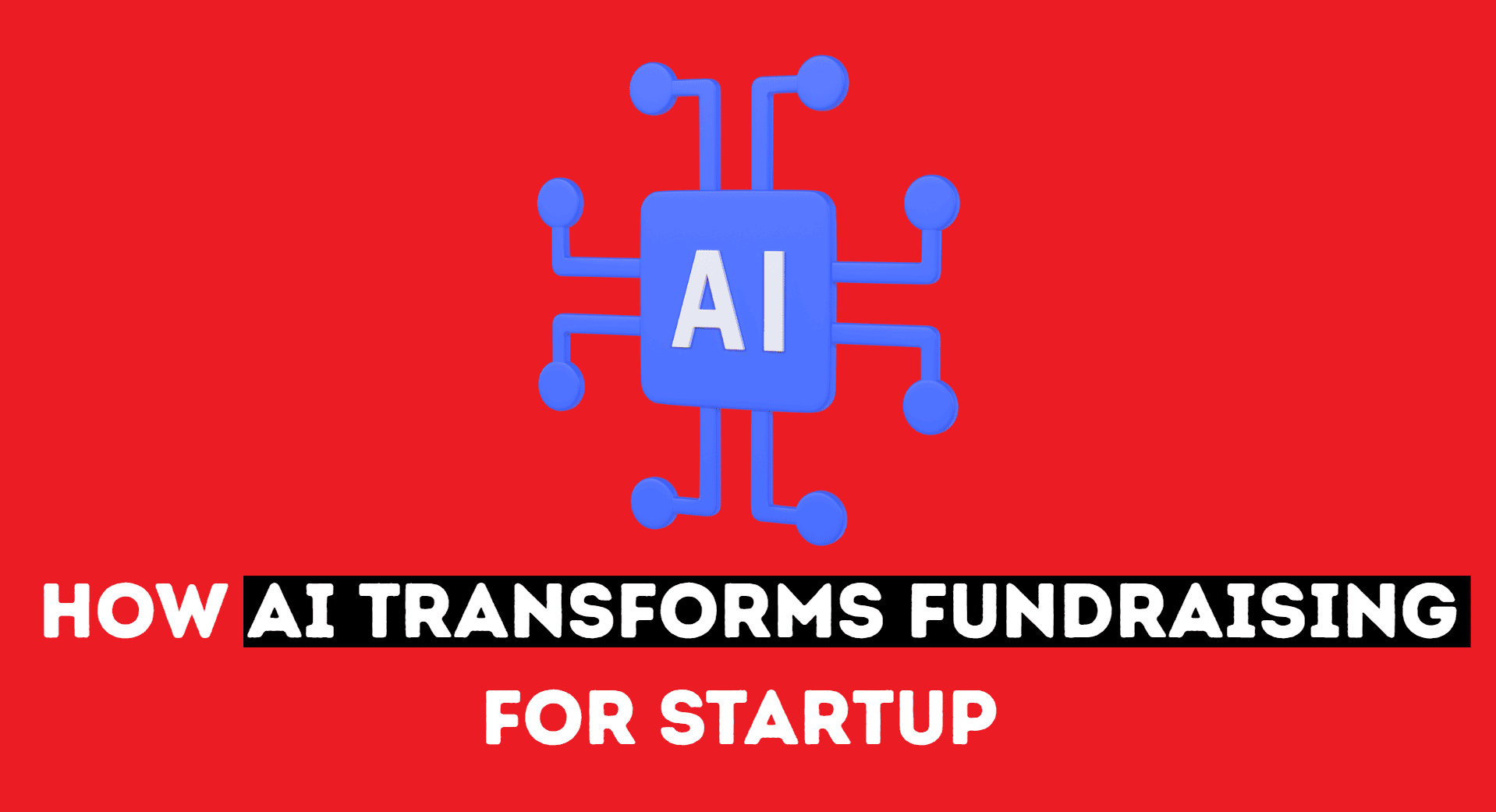Startup fundraising has always been a high-stakes endeavor, traditionally driven by personal networks, manual research, and long pitch cycles. In today’s digital-first economy, artificial intelligence (AI) is dramatically altering that landscape. According to PwC’s Global AI Study, AI could contribute up to $15.7 trillion to the global economy by 2030, with a significant portion reshaping how business funding operates.
From automating outreach to evaluating investor fit and improving due diligence, AI is no longer an optional enhancement—it is rapidly becoming a core component of modern startup funding strategies.
AI-Driven Investor Matching: Smart Targeting at Scale
The End of Manual Prospecting
Traditionally, startup founders relied on word-of-mouth referrals, accelerator connections, or trawling databases like Crunchbase or AngelList to identify potential investors. Today, AI streamlines and automates this process through tools that use natural language processing and machine learning to suggest ideal investors based on verticals, investment history, check sizes, and funding stages.
For example, platforms like Zebrium, VCWiz, and Signal use algorithms to surface warm leads that are statistically more likely to invest in a specific startup type. These AI systems digest hundreds of investor profiles, recent deals, and online behaviors, then recommend personalized lists in seconds—saving founders weeks of manual effort.
Investor Personas and Custom Scoring
AI also generates predictive investor profiles by aggregating publicly available data, including:
- Social media behavior
- Past investments
- Portfolio performance
- Industry trends
Startups can apply machine learning models to score and rank investor fit, giving priority to those whose interests strongly align with the startup’s mission, market, and growth trajectory.
AI for Personalized Outreach and Engagement
From Cold Emailing to Intelligent Conversation
Mass email campaigns with generic pitch decks are becoming obsolete. AI writing assistants like Lavender and Copy.ai, combined with CRM platforms such as Apollo.io, enable founders to craft hyper-personalized emails that reference an investor’s past investments, social media comments, or publications—boosting open and response rates by up to 45% according to recent data from HubSpot.
In the middle of the fundraising journey, founders now increasingly ask AI to simulate investor Q&A sessions or refine their pitch narrative to match an investor’s communication style. This results in clearer messaging, stronger resonance, and higher perceived credibility.
Predictive Analytics: Who Will Fund You Next?
AI Models Forecasting Funding Likelihood
Startups can now leverage AI-based platforms such as LeadIQ, Equidam, or PitchBook’s SmartInvestor to predict the likelihood of securing funding based on their metrics. These systems process key indicators such as:
- Team experience
- Market traction
- Revenue growth
- Burn rate
- Industry cycles
Using this data, AI models create a funding probability score and recommend strategic changes—like pivoting verticals or adjusting valuation—that increase appeal to investors.
According to a CB Insights report, 38% of startups fail due to lack of funding. AI-driven tools aim to significantly lower that risk by offering timely, data-backed insights before the pitch even begins.
AI in Investor Due Diligence and Valuation
Startups Can Think Like Investors
The due diligence process is traditionally opaque and time-consuming. However, AI allows startups to anticipate investor concerns by running similar algorithms investors use to evaluate risk. For example:
- Clearbrief scans legal documents to highlight inconsistencies.
- DocSend’s AI-powered analytics show which parts of a pitch deck receive the most attention, enabling founders to optimize their materials.
- Equity management tools like Carta help simulate cap table outcomes.
AI levels the playing field—founders no longer walk into investor meetings blind. They come armed with strategic insight.
Democratizing Access to Capital
Breaking the Geographic and Social Barriers
AI-driven platforms are also expanding access to funding beyond Silicon Valley. Startups in emerging markets or underrepresented communities can now tap into global VC networks via platforms like:
- Republic (crowd-investing with AI-sourced deal matching)
- Seedrs and Wefunder (which use AI to screen deals and match investors)
- PitchDrive (focused on African startups using AI to connect with European investors)
This democratization of funding is perhaps the most revolutionary impact of AI in venture capital. It ensures that good ideas, regardless of geography or social capital, get the attention they deserve.
Real-World Success Stories
Examples of Startups Winning with AI
- Turing.com used AI-driven profiling to raise over $140M by connecting remote developers with companies through smart matching.
- Airbnb refined its investor outreach using predictive analytics and AI sentiment analysis of investor behavior during early fundraising rounds.
- Bumble leveraged AI-powered valuation models before its IPO, attracting large-scale funding early on.
According to McKinsey, companies that adopt AI in core decision-making processes (such as fundraising) outperform their peers by up to 20% in profitability.
Challenges and Ethical Considerations
Risks of Over-Reliance on Algorithms
Despite its potential, over-dependence on AI introduces new risks:
- Bias: AI models can inherit investor biases, favoring specific demographics or industries.
- False signals: A high AI-generated “fit” score doesn’t guarantee actual human interest.
- Data privacy: Improper data handling can expose sensitive startup or investor data.
Founders must treat AI as an augmentation tool, not a replacement for relationship-building or business fundamentals.
Final Thoughts: A New Investment Paradigm
Artificial intelligence is not just optimizing the investment-seeking process—it is redefining it. By augmenting outreach, targeting, evaluation, and prediction, AI empowers startups to act faster, smarter, and with more precision than ever before.
As the tools evolve and become more accessible, the barrier to entry in fundraising will drop, ushering in a new era where what matters most is the strength of the idea—and how well it’s communicated using data.
Startups that learn to collaborate effectively with AI will lead the next wave of innovation—not just in products, but in how they’re funded.

